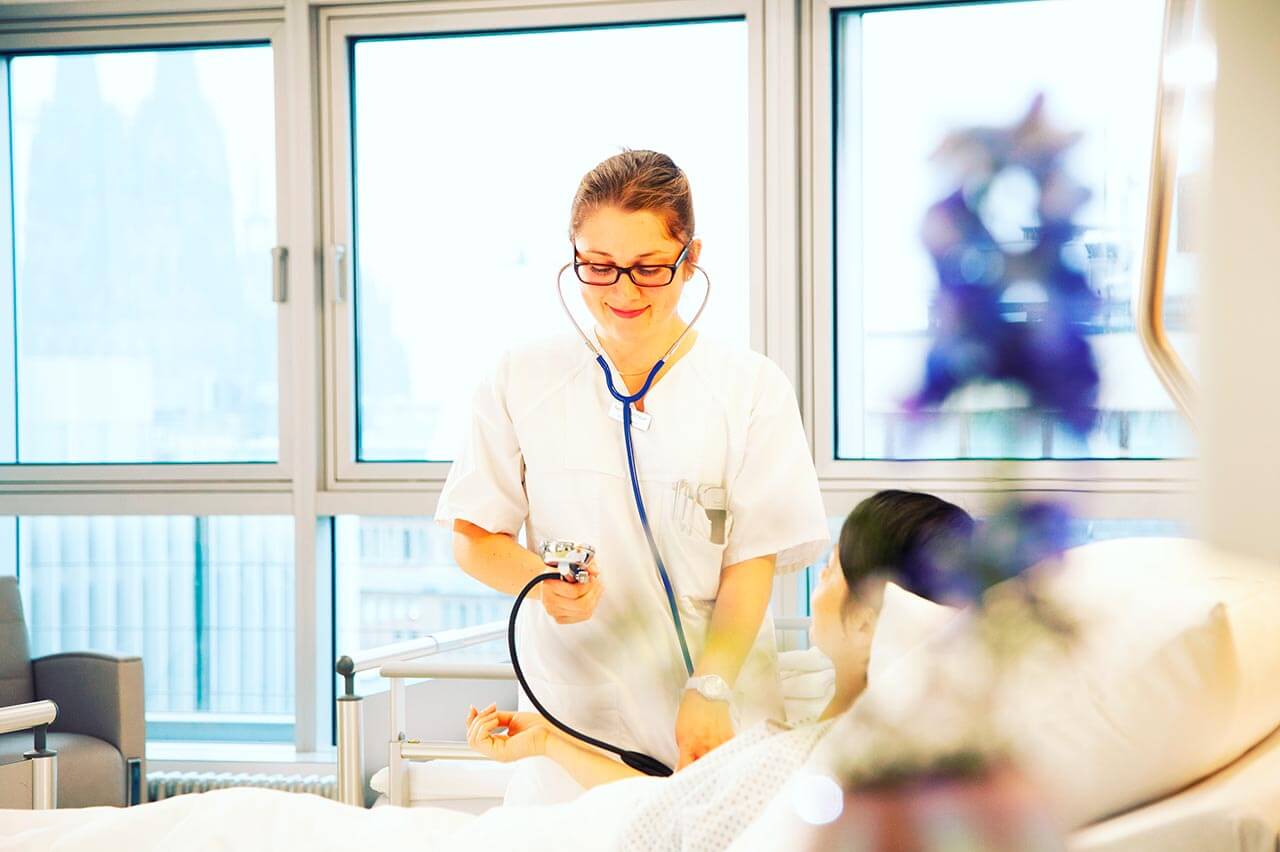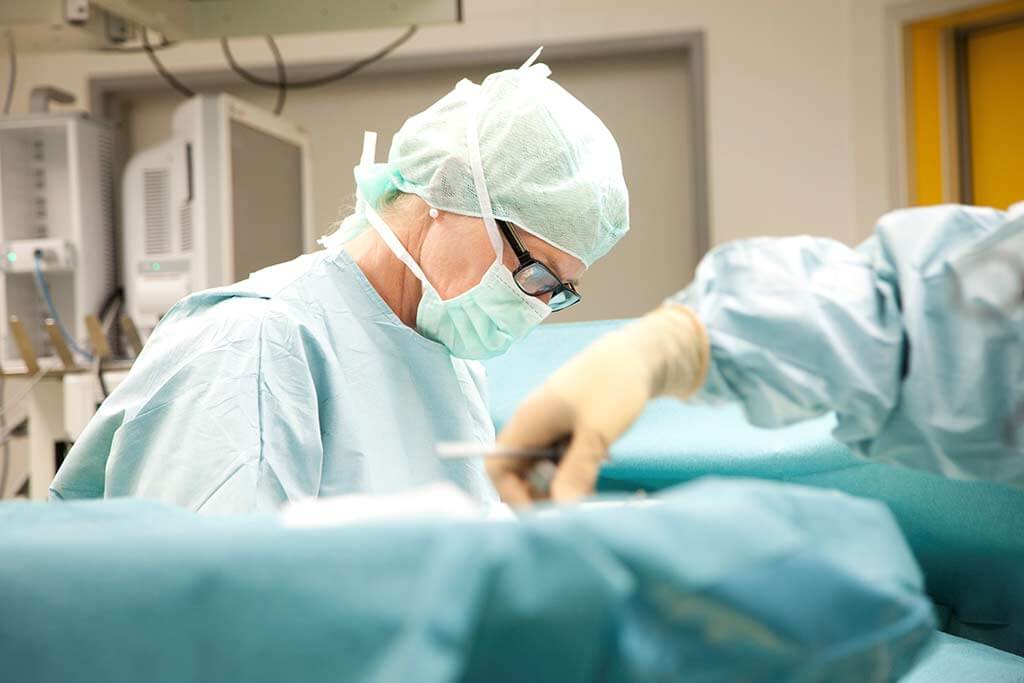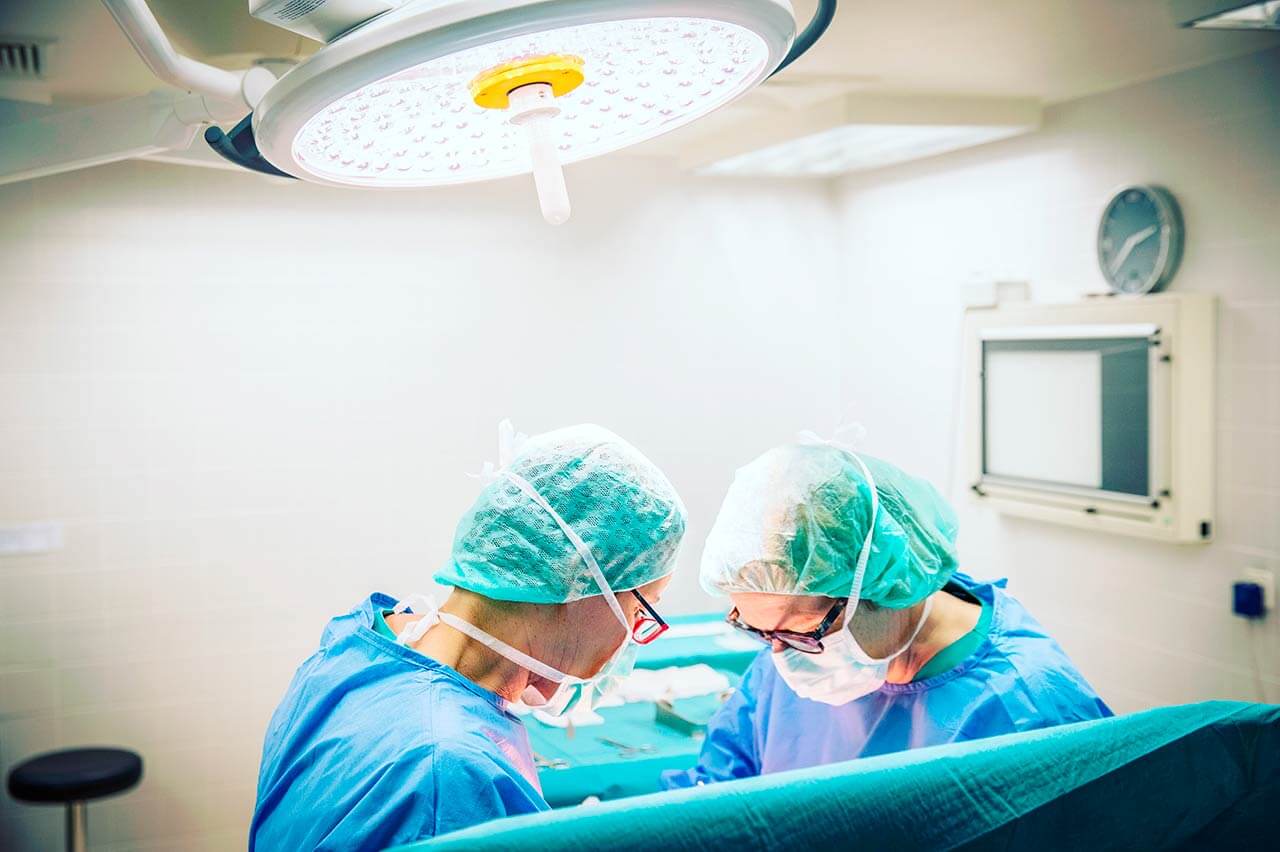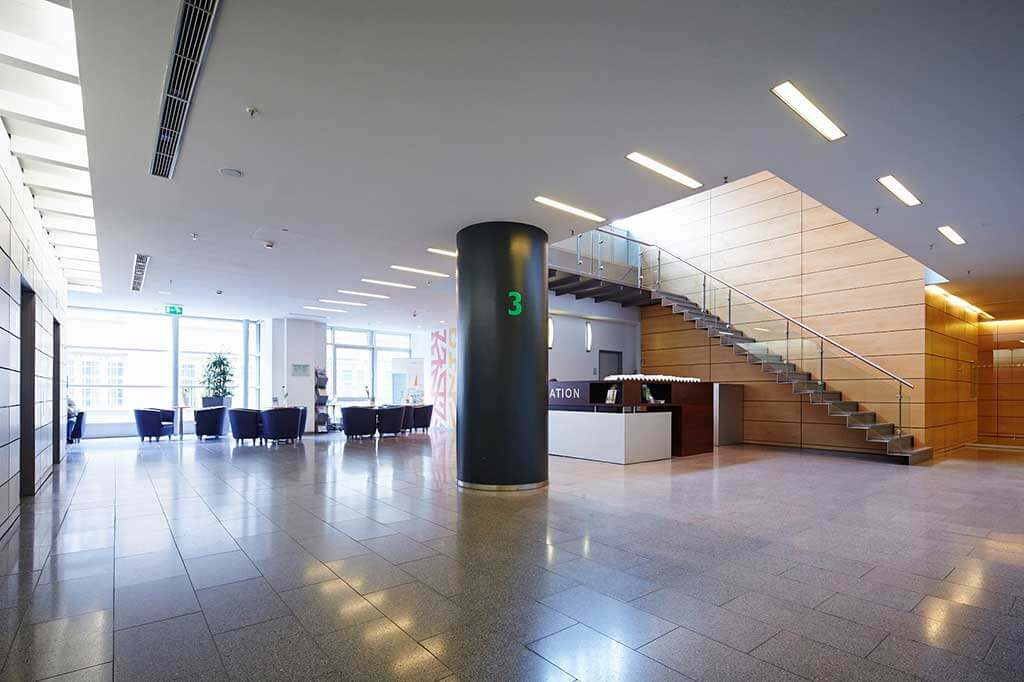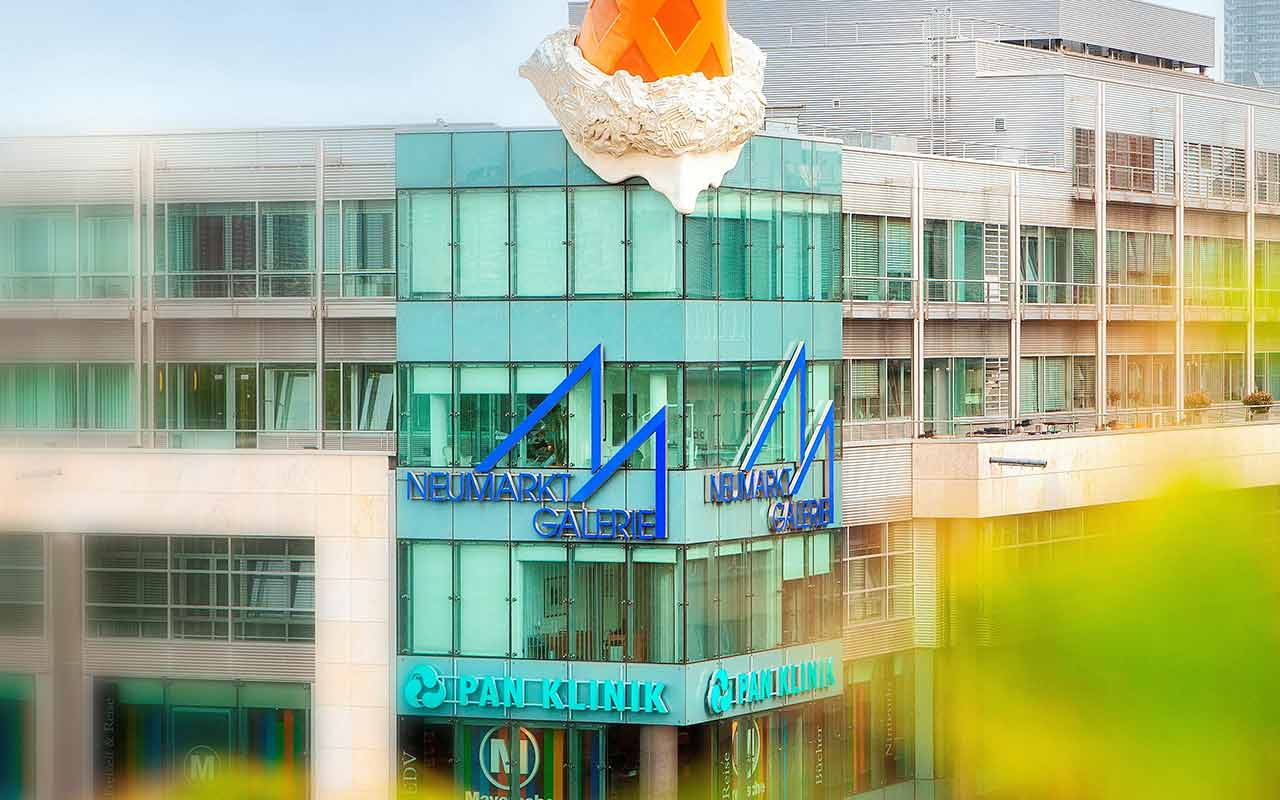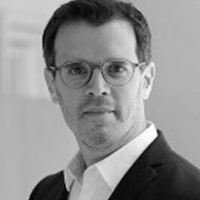
The program includes:
- Initial presentation in the clinic
- clinical history taking
- review of medical records
- physical examination
- laboratory tests:
- complete blood count
- biochemical analysis of blood
- inflammation indicators (CRP, ESR)
- TSH-basal, fT3, fT4
- indicators of blood coagulation
- CT planning of radiation therapy
- full course of conventional radiation therapy
- symptomatic treatment
- cost of essential medicines and materials
- nursing services
- control examinations
- consultations of related specialists
How program is carried out
During the first visit, the doctor will conduct a clinical examination and go through the results of previous laboratory tests and instrumental examinations. After that, you will undergo an additional examination, including complete blood count, laboratory assessment of liver and kidney function. Based on the received results, the physician will conduct radiotherapy planning with the help of CT or MRI, make the permanent tattoo marks on the skin and conduct CT simulation in order to assess the accuracy of the rays and the radiation dose. If necessary, related medical specialists will be involved in the elaboration of a treatment regimen (tumor board).
Radiation therapy is carried out as the day hospital procedure, without mandatory admission to the hospital. At each visit, the physician will assess your general condition and the marks on the skin. After that, you will be placed in a shielded radiation therapy room, on a special table.
Each radiation therapy session lasts less than half an hour (including preparation). All this time, doctors and nurses are monitoring your condition, you can communicate with them through a loudspeaker. The procedure is completely painless. Depending on the planned course of treatment, you will visit the hospital from 1 to 3-5 times a week.
After the completion of the radiation therapy course, you will undergo control examinations aimed at assessing your condition and efficacy of treatment. After that you will receive the medical report with detailed recommendations regarding further follow-up and treatment. In the future, you will be able to have a distant consultation with your attending physician and schedule the next course of treatment, if necessary.
Required documents
- Medical records
- MRI/CT scan (not older than 3 months)
- Biopsy results (if available)
Service
You may also book:
 BookingHealth Price from:
BookingHealth Price from:
About the department
The Department of Diagnostic and Interventional Radiology, Nuclear Medicine at the PAN Clinic Cologne offers the full range of medical services in the areas of its specialization. The main focus of the department's clinical practice is imaging diagnostic tests and diagnostics using radioisotopes. In the field of interventional radiology, CT-guided periradicular infiltration therapy is performed for back pain. The Chief Physician of the department is Dr. med. Michael Herbrik.
The medical facility has a modern technical base: advanced systems for computed tomography, magnetic resonance imaging, 3D mammography, high-resolution 3D ultrasound scanning, digital X-ray, scintigraphy and other tests. When carrying out diagnostic procedures, the doctors strictly observe radiation protection standards, and therefore any risks to the health of patients are excluded. All specialists of the medical facility have excellent qualifications and vast experience that allows them to provide reliable diagnostics using advanced equipment.
The patients are provided with all modern options for comprehensive breast diagnostics. The diagnostic rooms are equipped with devices for 3D mammography, 3D sonography, 4D elastography and duplex sonography of the breast. One of the innovative diagnostic tests in this area is 3D mammography (tomosynthesis), which is carried out using the advanced Hologic digital mammography device. This machine makes 1 mm thick slices and allows the doctors to detect the slightest changes in the breast tissues.
An indispensable diagnostic examination for suspected diseases of the internal organs (liver, kidneys, pancreas, spleen, lungs, etc.), bones, joints, spine, nervous system and heart is computed tomography (CT). This examination is an X-ray method, but unlike classical X-ray scanning, the technique allows the doctors to examine organs and anatomical structures layer by layer, which provides detailed images with high spatial resolution. In addition, CT ensures 3D images of the internal organs. The department's doctors perform CT scans on an innovative premium class scanner – Siemens Somatom Definition Edge. One of its main advantages is the use of low doses of radiation during the examination, which do not pose any harm to the patient's health. At the same time, the accuracy of the obtained diagnostic data is at the highest level. In addition, the department's doctors use computed tomography to guide periradicular infiltration therapy for back pain. The method is a sparing minimally invasive procedure, which is performed under local anesthesia.
The department also carries out examinations on advanced 1.5 T open MRI. Magnetic resonance imaging is not an X-ray method. This type of scanning involves the use of the physical phenomenon of nuclear magnetic resonance. MRI scans are highly accurate and are indispensable in the diagnostics of diseases of the brain and spinal cord, spinal column, pelvic organs, kidneys, adrenal glands and other organs. The innovative MRI scanner used in the department is an open device that guarantees the patient maximum comfort during the examination. This is especially important for claustrophobic and obese patients (if the patient weighs more than 120 kg).
In the field of nuclear medicine, the focus is on scintigraphy and single-photon emission computed tomography (SPECT). These diagnostic tests are most often indicated for the patients with suspected diseases of the thyroid gland, skeletal bones, heart, kidneys, lungs and liver.
The department's range of medical services includes:
- Diagnostic radiology
- Computed tomography (CT)
- Volumetric computed tomography
- Multislice computed tomography
- Magnetic resonance imaging (MRI)
- MR mammography
- MR angiography
- Multiparametric-MRI of the prostate
- 3D mammography
- 3D sonography, 4D elastography and duplex sonography of the breast
- Digital radiography
- Densitometry (bone mineral density measurement)
- Computed tomography (CT)
- Interventional radiology
- CT-guided periradicular infiltration therapy for back pain
- Nuclear medicine
- Scintigraphy (thyroid, skeletal, etc.)
- Single-photon emission computed tomography (SPECT)
- Other services
Curriculum vitae
Higher Education
- 1998 - 2004 Study of Human Medicine at the Heidelberg University.
- 2017 - 2019 Master of Business Administration (MBA).
Professional Career
- Since January 2015 Chief Physician of the Department of Diagnostic and Interventional Radiology, Nuclear Medicine at the PAN Clinic Cologne.
- July 2010 - January 2015 Deputy Head of the Department of Radiology at the University Hospital Essen.
- January 2006 - April 2010 Clinical Resident, University Hospital Cologne.
Photo of the doctor: (c) PAN Klinik
About hospital
The PAN Clinic Cologne is a multidisciplinary medical facility that combines advanced medicine, excellent quality of patient care and a high level of comfort. Founded in 1999, the clinic is located in the very heart of Cologne. During this time, the medical complex has gained long clinical experience, but at the same time it has preserved its primary concept of medical care – high-quality diagnostics and treatment using the achievements of modern medicine.
Today, a huge team of doctors at the clinic admits patients in 25 medical fields, including neurosurgery, neurology, orthopedics, cardiology, gynecology, mammology, urology, endocrinology, plastic surgery, etc. It is worth noting that the clinic employs the best specialists with a wealth of experience and thorough clinical training in the best medical facilities in Germany, other countries of Europe and USA. The clinic's medical team includes many professors who are distinguished by outstanding achievements in the treatment of diseases of a particular profile and who successfully conduct research activities, participate in national and international congresses, symposia and other events.
The clinic annually provides treatment to more than 10,000 patients, and more than 3,000 interventions of varying complexity are performed in its operating rooms. The operating theaters have state-of-the-art technology and equipment for classical open surgery and minimally invasive interventions. In addition, all departments of the medical facility have advanced diagnostic equipment, so that doctors always make the correct diagnosis, which determines the success of subsequent treatment. During the therapeutic process, the specialists strive to choose the most sparing, but at the same time highly effective treatment regimen.
The quality of medical services provided in the clinic is awarded with the prestigious DIN ISO 9001 certification, and therefore patients trust their health to doctors with complete confidence and benefit from the optimal treatment of the European standard.
Photo: (с) PAN Klinik, (c) depositphotos
Accommodation in hospital
Patients rooms
The patients of the PAN Clinic Cologne live in light and cozy rooms with a modern design. A standard patient room includes a comfortable automatically adjustable bed, a bedside table, an air conditioning, a DVD player, a telephone, a TV and a nurse call system. The patient rooms also have Wi-Fi. Each patient room has an ensuite bathroom with shower and toilet. The bathroom also has a hairdryer and towels.
If desired, the patients can live in enhanced-comfort rooms. These patient rooms are distinguished by their more exclusive interiors, as well as beautiful views of the Cologne Cathedral and cityscapes. The bathrooms in these enhanced-comfort facilities include disposable slippers, a bathrobe, towels and toiletries. In addition, the patients living in enhanced-comfort rooms are offered a special menu.
Meals and Menus
The patient and his accompanying person are offered tasty and balanced three meals a day: buffet style breakfast and dinner, as well as lunch consisting of 3-4 courses. If for some reason you do not eat all the foods, you will be offered an individual menu. Please inform the medical staff about your dietary preferences prior to treatment.
Further details
Standard rooms include:
Religion
The religious services are available upon request.
Accompanying person
During the inpatient program, the accompanying person can live with the patient in a patient room or a hotel of his choice. Our managers will help you choose the most suitable option.
Hotel
During the outpatient program, the patient can stay at the hotel of his choice. Our managers will help you choose the most suitable option.
